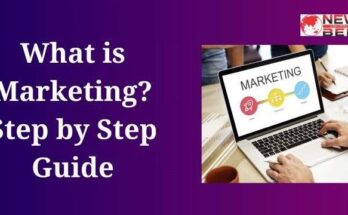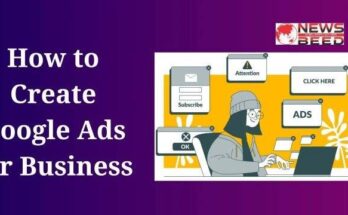Certainly, the debate between SEO (Search Engine Optimization) and PPC (Pay-Per-Click) advertising is an ongoing one, with no definitive answer that applies universally. The effectiveness of each strategy depends on various factors, including the nature of your business, your goals, and your budget. In this comprehensive discussion, we’ll delve into the intricacies of both SEO and PPC, comparing their advantages and disadvantages, and providing guidance on when and how to use each strategy to benefit your business.
I. Introduction
SEO and PPC are two critical components of search engine marketing, and each has its own unique characteristics and benefits. SEO is a long-term strategy focused on optimizing your website to rank organically in search engine results, while PPC is a short-term, paid advertising approach that provides instant visibility in search results. The choice between these two methods often depends on your specific business needs, goals, and constraints.
II. SEO: The Long-Term Investment
SEO is a process that involves making strategic changes to your website and its content to improve its visibility in organic (non-paid) search results. Here are some key aspects to consider when evaluating the suitability of SEO for your business:
1. Organic Traffic Growth
One of the primary advantages of SEO is the potential for sustainable organic traffic growth. When your website ranks well in search results for relevant keywords, you can enjoy a consistent stream of free, high-quality traffic. This can result in a more predictable and cost-effective source of leads and conversions over time.
2. Credibility and Trust
Websites that rank at the top of organic search results often enjoy a perception of trustworthiness and authority in the eyes of users. This can lead to increased credibility for your business, which can be challenging to achieve with PPC alone.
3. Cost-Effective in the Long Run
While SEO may require an initial investment, it can be cost-effective over the long run. Unlike PPC, where you pay for each click, organic traffic from SEO does not incur per-click charges. This can lead to significant savings as your website gains visibility.
4. Local and Global Reach
SEO is flexible and can cater to both local and global audiences. By optimizing for location-specific keywords, you can target a local market effectively, while optimizing for broader terms can help you reach a global audience.
5. Long-Term Sustainability
With proper maintenance and continuous improvement, SEO efforts can maintain and improve your website’s search rankings, making it a sustainable strategy for the long term.
Read Also:- What is Chatgpt Step by Step
However, SEO is not without its challenges and downsides:
1. Time-Consuming
SEO is a long-term game. It often takes several months or even years to see significant improvements in search rankings, making it unsuitable for businesses seeking quick results.
2. Initial Investment
Effective SEO often requires an initial investment in terms of time, resources, and potentially hiring professionals, such as SEO experts or content writers.
3. Uncertain Results
The SEO landscape is always changing, and there are no guarantees of success. Google’s algorithm updates and competition can affect your rankings.
4. Ongoing Maintenance
To maintain and improve your rankings, you must continually update your website and content, monitor performance, and adapt to algorithm changes.
III. PPC: The Instant Gratification
PPC advertising is a model where you pay for each click on your ad, which is displayed prominently in search engine results. Here are some key aspects to consider when evaluating the suitability of PPC for your business:
1. Instant Visibility
One of the primary advantages of PPC is the ability to achieve instant visibility in search results. This can be particularly beneficial for new businesses looking to generate traffic and leads quickly.
2. Control and Flexibility
With PPC, you have full control over your ad campaigns, including budget, targeting, and ad content. This flexibility allows you to test different strategies and optimize your campaigns in real time.
3. Targeted Advertising
PPC offers precise targeting options, allowing you to reach specific demographics, locations, and user behaviors. This can help you get your message in front of the right audience.
4. Measurable Results
PPC provides detailed data and analytics, enabling you to track the performance of your campaigns. You can measure ROI (Return on Investment) and make data-driven decisions to improve your strategy.
5. Scalability
You can scale your PPC campaigns up or down as needed. This is especially useful for businesses with fluctuating demand or seasonal products/services.
However, PPC also has its share of challenges and drawbacks:
1. Cost
PPC advertising can be expensive, particularly in competitive industries. You pay for each click, and if your campaigns are not well-optimized, costs can quickly add up.
2. Short-Term Focus
PPC provides instant results, but it is a short-term strategy. Once you stop paying for ads, your visibility disappears. It is not a sustainable source of traffic like organic SEO.
3. Competition
In highly competitive industries, the cost per click can be prohibitively high, making it challenging for smaller businesses to compete effectively.
4. Ad Blindness
Some users consciously or subconsciously ignore paid ads, focusing on organic results. This can limit the reach and effectiveness of your PPC campaigns.
IV. When to Use SEO
Now that we’ve explored the strengths and weaknesses of SEO and PPC, let’s discuss when SEO is the more suitable choice for your business:
1. Long-Term Goals
If your business has long-term objectives and is not solely focused on short-term gains, investing in SEO is a wise decision. Over time, it can become a sustainable source of organic traffic, which is more cost-effective than relying solely on paid advertising.
2. Limited Budget
If your marketing budget is limited, SEO can be a cost-effective way to drive traffic and leads without incurring per-click charges. While there is an initial investment, the ongoing costs are generally lower compared to PPC.
3. Building Credibility
For businesses aiming to build authority, trust, and credibility in their niche, SEO is invaluable. Organic search rankings can boost your reputation and influence consumer trust.
4. Content Marketing Strategy
If your business heavily relies on content marketing, SEO is essential. High-quality, SEO-optimized content can attract organic traffic, bolstering the effectiveness of your content strategy.
5. Niche Markets
In less competitive or highly specialized niches, SEO can be particularly advantageous. It may be easier to rank for relevant keywords and establish a strong online presence.
V. When to Use PPC
Conversely, here are situations in which PPC is the better choice for your business:
1. Quick Results
If your business needs immediate traffic and leads, such as for a product launch or time-sensitive promotion, PPC is the way to go. It provides instant visibility in search results.
2. Competitive Industries
In highly competitive industries, gaining organic search rankings can be challenging and time-consuming. PPC can help you compete effectively, even if your budget is limited.
3. Testing and Optimization
PPC is an excellent tool for testing different ad strategies, keywords, and target audiences. The real-time data and analytics provided by PPC platforms make it easy to optimize your campaigns for the best results.
4. Seasonal Businesses
For businesses with seasonal products or services, PPC offers the flexibility to increase or decrease advertising efforts based on demand. This prevents unnecessary spending during off-peak periods.
5. Complementing SEO
PPC and SEO can work together effectively. For highly competitive keywords, you can use PPC to capture immediate traffic while your SEO efforts build over time. Once your SEO strategy yields results, you can reduce your PPC spending.
VI. Combining SEO and PPC
Many successful businesses use a combination of both SEO and PPC to maximize their online presence. This hybrid approach offers several advantages:
1. Diversified Traffic Sources
Relying solely on one method can be risky. Using both SEO and PPC ensures that your business has diversified sources of traffic, reducing your dependence on a single channel.
2. Comprehensive Keyword Coverage
SEO and PPC can help you cover a broader range of keywords. SEO focuses on long-tail and informational keywords, while PPC can target high-competition, high-value keywords.
3. Improved Conversion Rates
You can use PPC data to identify high-converting keywords, which you can then target with your SEO efforts. This can lead to increased organic search conversions.
4. Better Data Integration
When you use both SEO and PPC, you can gain deeper insights into user behavior and preferences, which can inform your overall marketing strategy.
Also, Read This: What is Digital Marketing in Hindi
5. Strategic Adaptability
The ability to shift your budget and efforts between SEO and PPC as needed allows you to adapt to changing market conditions and business priorities.
Conclusion:
The choice between SEO and PPC ultimately depends on your business’s unique circumstances, goals, and resources. Both methods have their strengths and weaknesses, and often the most effective approach involves a combination of the two. SEO offers sustainable, long-term growth, while PPC provides instant visibility and precise control. To make an informed decision, carefully assess your business needs, budget, and timeline, and consider consulting with digital marketing experts who can help tailor a strategy that aligns with your objectives.
Remember that the digital landscape is continually evolving, and the effectiveness of SEO and PPC strategies may change over time. Staying informed about the latest industry trends and adapting your approach accordingly is crucial to your business’s online success.





Thanks for your help and for writing this post. It’s been great.
You are a very persuasive writer. I can see this in your article. You have a way of writing compelling information that sparks much interest.